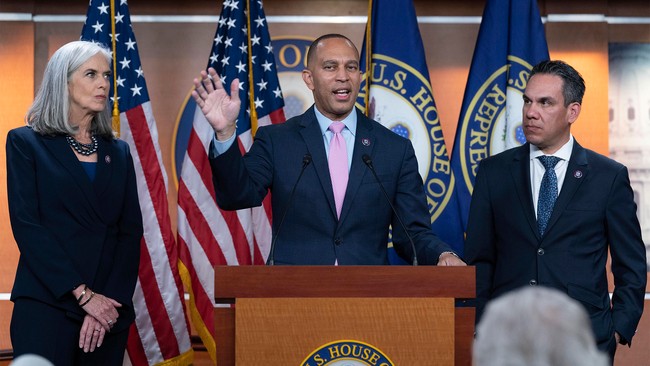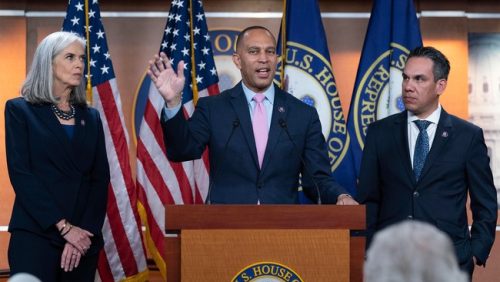The latest polling shows a sharp disconnect between Democratic leaders and the priorities of everyday voters, and the divide is getting wider. Voters say they care first about jobs, rising costs, retirement security, health care, public safety, and border control. A center-left survey that polled half a million Americans put the disconnect in stark numbers and recommended Democrats change course if they want to compete. The Republican Party’s image nudged a touch better, but that hardly changes the broader fallout for Democrats.
Democrats have steered far from the practical concerns that dominate most voters’ lives, and much of it is self-inflicted. Internal pressure from activist wings and groups with radical agendas has reshaped party priorities, leaving the mainstream behind. That shift helps explain why many voters now call the party out of touch on basic bread-and-butter issues.
Public opinion reflects this split in plain numbers: roughly seven in ten Americans now say the Democratic Party is out of touch with the issues that matter to voters. That figure represents a double-digit increase over the last decade and highlights a widening gap between leadership messaging and voter concerns.
The percentage of Americans who believe the Democratic Party is “out of touch” has increased by double-digits over the last decade, with 70% indicating the party is disconnected from the issues that matter to voters. The Democratic Party is perceived as being overly-focused on “Protecting the rights of undocumented immigrants” and “Protecting the rights of LGBTQ+ Americans” – alienating voters who care more about secure borders and crime reduction, a survey released Monday by Welcome, a center-left group, found. “To win elections, Democrats need to make the following changes. First, we need to focus more on the issues voters do not think we prioritize enough (the economy, the cost of living, health care, border security, public safety), and focus less on the issues voters think we prioritize too highly (climate change, democracy, abortion, and identity and cultural issues),” read the conclusion of Welcome’s “Deciding to Win” survey.
70% of voters think the Democratic Party is ‘out of touch’: poll https://t.co/apWQMEpvzC pic.twitter.com/6qXJxWT3lT
— New York Post (@nypost) October 28, 2025
Welcome’s analysis goes further, urging a pullback on certain agenda items to regain voter trust. “We need to moderate our positions on issues where our agenda is unpopular, including immigration, public safety, energy production, and some identity and cultural issues.” That recommendation puts a spotlight on policy choices that are turning off much of the electorate and explains why support has eroded.
The same survey showed a modest rebound for Republicans: 65% of voters now say the GOP is out of touch, down from 70% in 2013. That dip suggests a slight tightening of party image for Republicans, but it also underscores how fragile public confidence can be across the board. Voters are still sharply focused on pocketbook and security issues above cultural debates.
The Welcome survey asked half a million Americans to rank their priorities, and the results put economic and safety concerns front and center. The top priorities were listed as protecting Social Security and Medicare (82%), lowering everyday costs (79%), making healthcare more affordable (74%), creating jobs and economic growth (74%), cutting taxes on the middle class (66%), lowering the rate of crime (56%), and securing the border (53%).
At the same time, several issues drew little public attention compared with core economic and safety concerns. Lower-priority items included protecting illegal immigrants (23%), hiking taxes to increase spending on “social programs” (24%), and protecting LGBTQ rights (25%). Those numbers explain why moves that emphasize these items can look tone-deaf to many voters.
On Capitol Hill, those divisions have real consequences. Political leaders pushing expansive spending on immigration-related healthcare, international climate initiatives, and culture-focused foreign aid are clashing with voters who want measurable relief at home. That disconnect is playing out in high-profile fights over government funding and policy direction.
For voters focused on daily life—paychecks, healthcare costs, retirement security, and public safety—the survey is a blunt signal that party messaging matters. The path forward for either party starts with aligning priorities with what most Americans say they care about, and right now the Democratic Party’s agenda is registering as out of step with a majority of the electorate.






